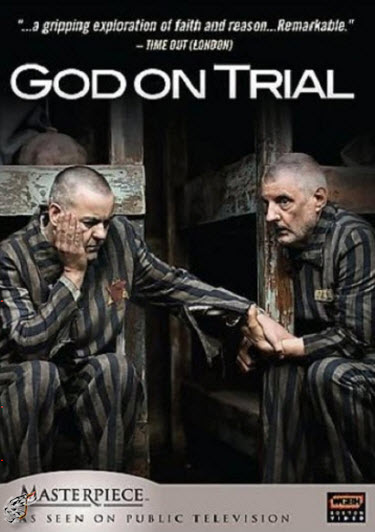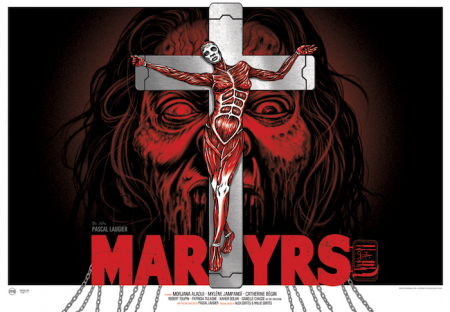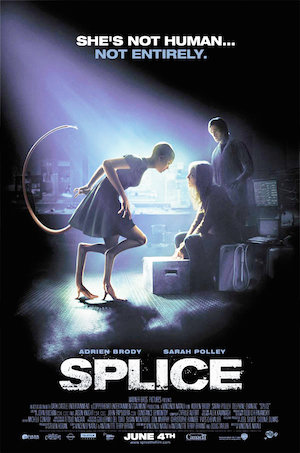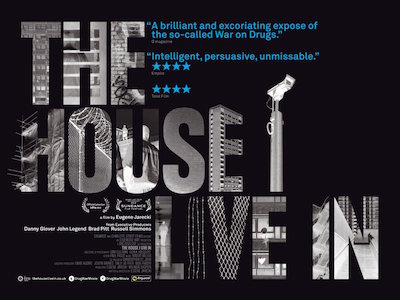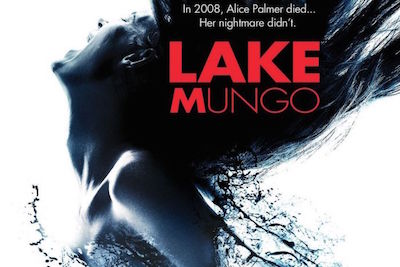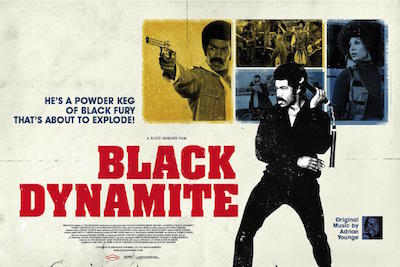The Definitive Warhammer 40,000 Recommended Film List


Hello again. Today post goes out to the Grimdark fans. I’m going to be looking at some films you might enjoy.
A guest column by BoLS Lounge alumni YorkNecromancer
Christ alive but I miss ’Vampire: The Masquerade’
My background is in cultural and arts criticism, and not just because it was what I was good at during my time at school. As long-time readers of my blog may have noticed, I love looking at works of art, and analysing, dissecting, critiquing the various ideas and themes within a work. Firstly, I love to do this because it’s excellent fun, but secondly, it’s because ideas define reality. Our ideas of the world determine our opinions of how it functions… And most of us don’t get our ideas about things from personal experience. We get our ideas from the people we know, and from the art, culture and science available around us.
As a result, I also feel that looking at the ways a piece of art functions is a critical life skill – it’s one of the key ways to identify how other people think, as well as identifying when and how we are being manipulated.
As I mentioned last month, I am a massive fan of White Wolf’s roleplaying games. Aside from the very high quality of their sourcebooks, one of the things I used to love that they did was to give you a nice selection of film, comic and music recommendations for players looking to better understand where the writers had gotten their own inspiration from. It was great: if you wanted to run a game about Vampires searching for a way to become more human, they’d give you a list of films that best evoked those themes, and you could watch, get yourself a little inspiration, and really improve your roleplaying sessions as a result.
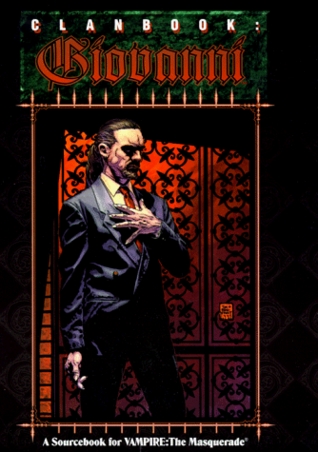
Pictured: so 90’s but yet so good
Now, 40K obviously isn’t a roleplaying game in the same way – the nature of a wargame means, fairly obviously, you can only ‘Forge A Narrative’ about war. As a result, it seem to some that it’s kind of redundant to recommend films for a fan of 40K looking for inspiration for their games.
Well, I’d disagree with that. I think there are a great many brilliant films that inventive players could use for inspiring their armies and their ideas, and so I’ve created a list of them.
The way this is going to work is simple: I’m going to go through the armies available for 40K in alphabetical order. However, it’s not the usual kind of list. I’ve tried to avoid war porn or anything obviously 40K. You won’t find ‘Starship Troopers’ or ‘Aliens’ or ‘Event Horizon’ or any of the usual suspects here.
There’s two reasons for this. Firstly: what’s the point of an article that tells you something you already know? If you’ve been a fan of 40K for longer than a few years and you haven’t seen ‘Starship Troopers’, you’re kind of doing it wrong. Whether you love or hate the film (and I’m firmly in the former category), the fact is, it’s pretty much one of the key 40K films. Where else are you going to see Imperial Guard fighting Tyranids? So, I’m trying to avoid the obvious stuff in favour of hopefully more obscure cinema you might not be aware of.
The second reason is because all too often, when talking about films that might inspire our hobby ideas, I think we tend to overlook films if there’s not an immediately obvious visual or aesthetic connection; films that are obviously exceptionally similar to the army faction as written. Where possible, I’m not going to recommend films that have simple surface connections to any one army. I’m trying for something a little deeper than that; something that will hopefully inspire slightly more thoughtful approaches to hobby ideas.
For example, I recently watched ‘Alien Outpost’, which might as well have been a film about the Astra Militarum. It’s not here though, because while enjoyable enough, it’s not really a film that made me think, or that presented anything other than a typical, clichéd war story I could’ve seen anywhere else.
When I say the films below share a link to the army in question, it’s that they share (in my interpretation) a thematic link. If you watch the film, you should hopefully be able to see the connection as I’ve explained it, and how the film pertains to the 40K faction in question.
Defining What We Mean By ‘Theme’.
Because I appreciate that readers may not have a grounding in what I mean by a theme, I’m just going to take a very brief diversion to define terms.
Wikipedia’s definition is pretty much perfect; if you want more information than this, I suggest that there makes an excellent starting point. To quickly quote the key idea:
The Film List
Oh, just as a side note, if you click the name of the film next to the faction name, it’ll take you to a trailer of the film. Be warned: some of these are NSFW.
Here we go then…
Adepta Sororitas – ‘God On Trial’.
The Sororitas are a hyperkinetic parody of the Catholic Church, but the core thing that makes them different to other armies is their faith; in their hands it becomes a literal source of power.
I was originally thinking of going with ’The Devils’, but it seemed too obvious a choice. Instead, I’ve chosen this film; it’s an exceptionally difficult look at the nature of faith. Based on an alleged incident that occurred in the death camps of World War 2, it tells the story of how a group of Jewish inmates decided that the fact they were being gassed to death in their millions was proof that God had broken His covenant with the Jewish people. So they put him, literally, on trial. Written by a devout Christian, it ruthlessly interrogates the very concept of faith: its power and limitations, as well as the extremes it can drive people to, both to good and ill…
It should hopefully give a good insight into the kind of thought that drives the basic Sister as she slogs towards the enemy.
Astra Militarum – ‘Centurion’.
There are so very many war films about blood and sacrifice and brotherhood and blah blah blah… With so many clichés, none of that really gets to the core of the Guard, which is this: to be a Guard is to be outclassed. Literally every army does it better than you… But that doesn’t mean you can be counted out. When you’re up against the horrors of a hateful universe, cut off, and surrounded by a world that wants you dead, and all you’ve got to fight with is a torch and your wits. The Guard’s key trait isn’t their skill at arms or their high levels of technology. It’s their determination and grit.
This film is about a rag-tag band of Romans, cut off from their Empire, and hunted through the depths of Scotland by a terrifying band of Celts (who might as well be a stand-in for any 40K specied you like). The reason I love this film isn’t for the action (which is awesome) but for the characters; everyone matters, and you feel every death like a tragedy. Not to mention, the band is completely cosmopolitan, with people from every place in the Empire; much as I imagine the Guard to be, with various regiments from widely differing worlds.
Blood Angels – ’Gods and Monsters’.
With so many flavour of Astartes, it might seem weird that I’m giving the ‘named’ Chapters their own film, but the thing is, despite all the 3+, all those named Chapters are completely unique. So what makes the Blood Angels unique? Well, their blitzkrieg tactics, yes. But truly, it’s the Death Company. And how terrifying must that be? To see yourself, not as the regular Astartes do, as a warrior, but as a man following in the legacy of an actual [i[angel[/i]? To know that your role is to be a defender of humanity, a true force for good in the universe, but that at any minute, any minute, your mind might snap because of an incurable problem with your genetics. You’d lose yourself and everything that mattered.
This wonderful little character drama contains all of that. A fictional story based on a real man, it tells about James Whale, the famed director of the first ‘Frankenstein’ film, and his struggle with a ruthless dementia. The film starts gently enough, but very quickly descends into a very dark look at the terror of what it means to lose your dignity to insanity, and a horrid truth: that, for some at least, death might be the only possible release.
Cult Mechanicus (also Mechanicum) – ‘Temple Grandin’.
What does it mean to be a machine? Well, that very much depends on the writer. In 40K, it means to see the world analytically, with perfect knowledge. To look at things from a completely dispassionate perspective, and the power that comes from being able to perceive the world in such a way.
I had no idea who Temple Grandin was before I watched this tour de force of acting from Claire Danes. This film is a biography of her: a remarkable woman, born with severe autism at a time when that normally meant a lifetime incarcerated in an asylum. However, that wasn’t where Ms. Grandin ended up. The film is all about the way her mind perceived the world with almost perfect logic, and the deductive leaps and intuitive designs she was able to make as a result. You will not get a clearer insight into what it means to be a Magos who has sloughed off the weakness of the flesh than this.
Chaos Space Marines – ‘Behind The Mask: The Rise of Leslie Vernon’.
There’s a lot of options for this faction, but I’ve chosen this film because I think it’s the one that best gets the idea of what it means to be truly Chaotic. In the film, the character of Leslie Vernon is being filmed by a documentary crew who are trying to record his efforts to become a serial killer along the lines of Jason or Freddy. They think, because he’s being so friendly, that they are capable of understanding him. Also that they are safe from his violence.
They aren’t, and they’re not.
This is an excellent look at what it means to be a normal person who comes into contact with someone who truly believes in utter madness, as well as presenting the amount of dedication that goes into being terrifying. It neatly demonstrates that Chaos is not a plaything, and it’s not something you can hope to come near without great risk, as well as the sheer lethality of someone who has given themselves over to a truly dark philosophy.
Craftworld Eldar – ‘Sansho Dayu’.
The Craftworld Eldar are a culture capable of great beauty, as well as horrifying unpleasantness, and that’s all this film is about.
Set in the dying days of Edo Japan, Mizoguchi’s film is as far from the clashing swords of typical samurai chambara films as you can get. While the film is spectacularly beautiful to look at, it doesn’t romanticise the ancient Japanese ways in the slightest, presenting them in all their ugly brutality. The juxtaposition of these two things – beautiful cinematography and horrifying viciousness – is what gives the film its power, and it neatly shows the ugliness in a culture that is all too often forgotten or swept aside by outside observers who only see exotic difference. Despite its age, it’s a film that pulls no punches at all, and offers any Eldar player an insight into what it must be to be part of such a beautiful, but ultimately cruel culture.
Dark Angels – ‘Behind The Candelabra’.
Lionel Johnson’s poem ‘The Dark Angel’ was all about his horror at his own homosexuality. How fitting it is that this should basically be the core theme of the Dark Angels’ two leaders, Lion’el Jonson and Luther. The story of the Dark Angels is a story of how love between two men turned first sour, then destructive.
In essence, that’s the entire plot of ‘Behind the Candelabra’. Telling the story of Liberace and his lover, Scott Thorson, it looks at how – despite a genuine love for one another – relationships between singular men can fall apart. Liberace’s eccentricities may be the start of it, but with Thorson’s own significant personal weaknesses escalating things, the slow decline of love into self-destruction is awful to watch. The parallels between Jonson and Luther, both so dedicated to one another until Jonson’s indifference and Luther’s jealousy slowly tear the two of them quite apart are instructive. A superb look at how sometimes, love just isn’t enough to keep people from wrecking everything around them.
Dark Eldar – ‘Martyrs’.
I love this faction, but it can’t be denied that from the outside, the Dark Eldar look a lot like dull clichés. Even GW admit as much; in the infamous Chapterhouse legal case, their own people described the faction as ‘evil’, which is about as generic as things get. Bad guys who are bad for the sake of it are a very easy archetype to get wrong (Hey there ‘Thor: The Dark World’.) The thing is, the archetype doesn’t have to be unengaging. It’s all down to why they’re bad for the sake of it, and with the best – and most inhuman – villains, evil committed for its own sake becomes that much worse when it’s not for its own sake – when it might actually have a purpose.
‘Martyrs’ is a film about two young girls, and their efforts to escape the clutches of a sinister faction of sadists who want to hurt them, because they believe hurting young girls to be of great use. It’s a deeply disturbing look at what a truly alien mindset might believe, and the horror of being trapped by people who genuinely don’t care about your pain as anything but a means to an end in itself.
Oh, and a warning – this is probably the most disturbing film I’ve ever seen, and I do not say that lightly.
Daemons – ‘Palindromes’.
As the background always takes pains to point out, Daemons in 40K aren’t anything to do with Hell, punishment, or even anything especially religious. They’re essentially the manifestation of human emotion, taken to its most extreme place. While I think the daemon designs have always been goofy, I’ve always thought that’s a really interesting spin on the idea, and it’s also got real relevance to the real world. There’s a thick cultural narrative that says we should listen to our emotions, but there’s rarely the necessary admonishment not to let them rule you. What happens when you let your emotions act as the deciding arbiter of your choices and behaviours?
Well, that’s what this film is all about. A comedy so black as to be near-lightless, it tells the story of a teenage girl who wants nothing more than to have a baby of her own to love. ‘Palindromes’ is an astonishingly dark film, and one that takes great pains to show that while humanity might be basically good, that’s ultimately irrelevant. Every person, no matter their beliefs, convictions, religion or lack of it, is capable of pure monstrosity when they choose to let their emotions alone lead them.
Death Korps of Krieg – ’All Quiet on the Western Front’.
Okay, so this is one I really struggled with, largely because the DKoK are so very singular; apart from the World War 1 theme, they’re still, essentially, Guard.
However, the one real difference would be that, to the DKoK, war is never anything but Hell, and ‘All Quiet On the Western Front’ is one of the greatest cinematic representations of this fact. Loathed by Adolf and his people, the book this film was based on took a long, hard look at the realities of trench warfare, and condemned them utterly. Many German veterans of the Great War were vocal fans of the story, holding it up as an example of a narrative that truly captured the wretchedness and pointless horror of what they had been subjected to.
Deathwatch – ’Monsters’.
To be Deathwatch means to be alone and isolated; a stranger in the strangest lands. Where other Astartes have their brothers around them at all time, and go to war as a Chapter, the Deathwatch work in small kill-teams, out in the furthest reaches of the Imperium, walking through places where the very idea of support is ludicrous.
Which is exactly what this film is about. It’s simple enough: two Americans try to make their way through a jungle in an alterna-Earth where alien wildlife now lives. While there’s action, it’s not about that, so much as the sense of isolation that must be day-to-day life for a Deathwatch, cut off as they are from the rest of humanity and surrounded by weirdness.
Eldar Corsairs – ’Interstellar’.
This was another difficult one. However, where the Craftworlders are a society gone stagnant, and the Dark Eldar are simply insane, the Corsairs are all about the adventure. They take Eldar super-tech and use it to traverse the vast expanses of void that make up the universe, and that entirely more intimate relationship with space itself is, to me at least, the core of what makes the Corsairs unique.
Probably the most mainstream film on this list, space is entirely what ‘Interstellar’ is about. It takes a long, hard look at the sheer majesty of space, as well as the natural drama that comes from attempting travel in such an aggressively hostile environment… Especially when you’re without access to lightspeed. While the film is flawed – it’s overlong, and in my opinion, would’ve made a better 10 hour HBO series you could take a break from than a bum-numbing 3 hour film – it still manages to get across a huge wealth of ideas. As a film that reinforces the notion that traversing the stars is dangerous as all get out, I doubt it will be bettered for a while.
Elysian Drop Troops – ’Point Break’.
The Elysians are basically what the Guard would be if they were truly intense. Everything the Elysians do is with maximum speed applied.
And that, in a nutshell, is what ‘Point Break’ looks at; the kind of mindset required to apply daredevil alacrity to combat situations. The hyperkinetic antivillains are an interesting juxtaposition: almost preternaturally calm 90% of the time, but during that 10% where they’re doing something crazy, they’re really balls-to-the-wall crazy.
Not to mention, if the parachute-jumping scene doesn’t make you want to jump out of a perfectly good Valkyrie, nothing will.
Farsight Conclave – ’Phoolan Devi : Bandit Queen’.
I’ve talked about the issues of the Tau caste system before. I first watched this film when I was about fourteen or so, and it left a lasting impression. This is a film that really rams home just how vile and unfair a caste system is, and the atrocities that are required – on a daily and personal basis – in order to maintain so grotesque a social structure.
Phoolan Devi was an Indian woman who was raped fairly constantly by many men over two days. Afterwards, she turned to the gun, killed those who had attacked her, and became the scourge of her nation. Unlike fictional rape-revenge fantasies, this film actually looks at the fact that while Devi’s plight makes her utterly sympathetic, she was categorically not a simple, avenging hero. It’s all too easy to forget that real life is messy, and this film does a good job of exploring those complexity. Difficult watching, but it does a good job of showing the difficulties inherent in rising up to fight the ruling caste of a proper caste system when you have no status of your own.
Genestealer Cult – ’Splice’.
Genestealers take you, and turn you into them. Not physically, but mentally. Your children become theirs, and from there, a vile, incestuous cult begins to develop.
‘Splice’ is a character-driven horror film which explores those same ideas to do with cross-species sexual attraction to the inhuman and the alien, as well as the kind of family relationships that might develop between an infected human and their partially-alien offspring. It’s deeply disquieting in almost every way, and the way it presents the partially human Dren is exactly as disturbing as a Genestealer hybrid should be.
Harlequins – ‘The Fall’.
Unlike almost every other faction on this list, the Harlequins are not truly an army; at their core, they are a troupe of artists. They tell the story of the fall of the Eldar and use those stories to both allow the Eldar to remember the past, as well as to hopefully feel free from the horrors of it.
This film is all about the power of stories, both to conceal truths and to liberate. A small girl who’s broken her arm befriends a seriously injured stuntman who tells her an exciting story about an indian, a explosives expert and Charles Darwin. It’s only once the story has captivated her that the storyteller starts asking his young audience to help him acquire this medicine he needs to help himself feel better, called ‘opium’…
Like ‘Sansho Dayu’, this is an almost astonishingly beautiful film, notable for the almost total lack of CGI for its locations – it took four years to make, because every place in the film is completely real – and if you want some inspiration for Harlequin colour schemes, you could do a lot worse than pinch some ideas from this.
Imperial Knights – ’Ghost Dog: Way of The Samurai’.
The Knight Households are something of an anomaly amongst the Imperium, largely consisting of men and women who have elected to live their lives by archaic, almost ancient codes of conduct that seem to have no placed amongst the rest of the Imperium.
This film considers what it means to live by an actual warrior code, living a life of personally defined honour. It also looks at how such limitations bring strength, as well as how strange such a mindset might look to more average citizens. If you really want to understand the kind of dedication it takes to act as a literal retainer to a great lord in a modern society, you can’t go wrong with this film.
Plus the soundtrack is great.
Khorne Daemonkin – ‘Straw Dogs’.
Khorne’s philosophy is, ultimately, an ugly one. Might makes right. It’s horrible, but an appealing idea to a certain kind of person, as well as being inherently quite intoxicating. By nature, violent dominance is empowering, no matter that another must suffer for the dominant party to feel good.
‘Straw Dogs’ is a genuinely disturbing look at the deranged appeal of toxic male violence, and the film is notorious for the fact it doesn’t shy from showing that such violence is both scarring, and desperately unheroic… Just like every single one of Khorne’s followers. After all, no matter how one might try to argue that success on the battlefield equates with greatness, when one cares not where the blood flows, how can one be anything but a monster…?
The Imperium as a whole – ‘The House I Live In’.
Okay, I know it’s technically not an army, but The Imperium is so essential to everything 40K that I couldn’t leave it off the list. The Imperium of Man is, by and large, defined by two things: hubris and bureaucracy. Everything about the Imperium as an organisation comes down to the fact it has set itself the impossibly lofty target of unifying the human species, and chosen exactly the worst methods of doing so.
That’s why I’ve chosen this documentary; the best way to extrapolate fictional societies is to better understand how real ones operate. This film looks at the abject failure that is the West’s War on Drugs, an almost insanely hubristic endeavour that has yielded little beyond bureaucratic madness and broken lives, and in many ways, achieved the exact opposite of what it was publicly set out to do. Essential viewing if you want to understand how those in charge of a society like the Imperium can delude themselves into thinking that what they have created is anything beyond the worst of all possible human civilisations.
The Inquisition – ‘Lake Mungo’.
The Inquisition are the agency that investigates the weirdness of the galaxy, and the one thing they can absolutely count on is that whatever they think it is they’re after? It won’t be. It’s going to be something altogether stranger.
‘Lake Mungo’ is, on the surface, a ghost film shot in a documentary style (not in the shakycam style that’s currently fading from popularity, but in a more formal style, created as a ‘true’ artefact). Beginning as a simple look at what seems to be a spirit haunting a house, as the narrative unfolds, it becomes clear that what’s going on is altogether weirder than anything so simple, and that what’s actually happening is something quite possibly beyond human understanding or classification. An unsung little masterpiece of the uncanny, this.
Militarum Tempestus (also Solar Auxilia) – ‘Eastern Promises’.
The scholae progenium produce women and men of duty and courage, raised from birth in a culture of absolute discipline to show no fear or doubt in the face of a far superior enemy.
This film looks at what sort of person such a man might be. Viggo Mortensen’s Mafiya gangster is a stoic mask of taciturn resolve, working amongst lunatics and killers with absolute professionalism and calm detatchment.
Where a Guard might panic, or try something a little bit risky, the Tempestus take their time and act with precision and skill. This film shows exactly what that looks like.
Necrons – ‘The Machine’.
I was tempted to go with ‘Battlestar Galactica’ for obvious reasons here, but that’s a TV series, so instead, I’ve gone for this film. The interesting thing about the Necrons, at least to me, is how the act of biotransference means that whilst you might be one person while you still had flesh, that doesn’t mean you’re the same when your body’s been replaced with Living Metal.
This film is about one of those secret military research labs where they’re developing a robot supersoldier. So far, so clichéd. However, the way it looks at what a human personality might look like, post-death, in a synthetic body, is quite fascinating from a 40K point of view, especially considering that the nature of your new body itself might be what causes you to change into something quite unintended.
Orks – ‘Looking For Eric’.
As I covered last month, Orks are all about solidarity and brotherhood. They may not make a big show of it like the Marines do, but that kinship drives almost everything about Ork kultur. For all the Astartes showy use of the word ‘brother’, the bottom line is that Marines don’t become Fearless when their mates are with them, and Orks do.
This film beautifully shows exactly what that looks like when it happens in the real world (especially in its final few scenes which are both hilarious, and punch-the-air awesome). Set in amongst a working-class community who are ignored and despised by those with power, this looks at what happens when the only power you have is the power of your mates. And their mates. And their mate’s mates.
Waaargh, indeed.
Skitarri – ’9’.
Perhaps even moreso than Marines, the Skitarri are truly transhuman soldiers, and if they’re on Mars, they’re living amongst hostile, sentient machines that don’t think like humans and which only wish to kill. That kind of existence, living on a literal lifeless rock trying to avoid insane robots is a genuinely terrifying one, and this film shows just how much.
‘9’ is set in just such a world, where a rogue AI has exterminated all human life, and the only thing capable of setting things right are nine small homunculi with a small fragment of human soul animating them. This is a film that takes absolutely no prisoners, and shows exactly how terrifying it must be to live on a Forge World where the Iron Men once walked.
Not to mention, the enemy robot designs are incredible.
Space Marines – ‘Dancer In The Dark’.
The Astartes sacrifice their lives on the altar of humanity’s future. Yes, they’re strong, and dangerous and violent, but what truly makes them Astartes is that they know no fear. When their time comes, the ultimate sacrifice is one they gladly pay.
This is a film which looks at exactly what that means in human terms. Telling the story of an immigrant caught up in a series of catastrophic events beyond her control, it looks at what kind of willpower it takes to sacrifice yourself – to coldly, rationally,truly sacrifice yourself – for another, who will never, ever know about it.
Space Wolves – ’Super’.
Those who wield violence in the name of justice are inherently monstrous, and the Space Wolves are no exception. The Emperor’s attack dogs, sent out to ravage those who would raise their hands against him or his good works, there’s a reason they’re the villains of what happened on Prospero.
‘Super’ is a film which looks at what kind of person looks for justice at the end of a weapon. It’s not a perfect film, but it asks a variety of difficult questions about the nature of vigilantism and the prosecution of a single-minded campaign against an unquestioned enemy.
It’s also bloody funny.
Tau – ’Black Death’.
Now I’ve tried to avoid overt spoilers throughout this list, but this is a film starring Sean Bean. So you know at least one person’s going to die. Sorry about that.
The Tau always talk about The Greater Good, and that’s one of the most sinister phrases it’s possible to use. As The Riddle of ‘Vampire: The Masquerade’ runs ‘a beast I am lest a beast I become’.
This film is looks at what can be justified in the name of ‘The Greater Good’. A team of inquisitors search through England, following rumours of a necromancer. Unlike most films, where the supernatural elements would be brought to the fore, this film takes the altogether scarier path, taking as its central theme the idea that there are no supernatural elements in the universe at all, including God. There’s just the world as is, and that’s it.
All of which means it’s a film about one group of fanatics looking to kill another, in the name of a belief in a Greater Good that simply can’t be justified. Dark, disturbing viewing.
Tyranids – ‘Antichrist’.
This was another difficult one. Ultimately, the thing about the Tyranids is that they represent a kind of implacable, cosmic horror; specifically, one that is natural.
‘Antichrist’ is a film about a couple whose son dies. Stricken with both grief and guilt, the mother goes to pieces, and in desperation, her husband takes them out into the forest together, where they can try and put her back together. This, it turns out, is The Worst Possible Idea.
This is a film where nature isn’t remotely a good thing; the woods are oppressive, a hideous, crushing force that doesn’t care a thing for the two tiny humans who have stepped into it so foolishly. All the scenes of the outdoors brim with a genuinely stifling kind of demonic malevolence, making ‘nature’ almost into a character by itself, and reinforcing the idea that this is not something humans should consider themselves capable of understanding.
And finally,
Ultramarines – ‘Black Dynamite’.
Because like Black Dynamite, the Ultras are just better than everyone else.
None of us like it, but there it is.
That’s it for this month, and thank you for reading. This article definitely took the longest I’ve ever spent writing one of these. If you’ve enjoyed this list, are wondering where my Horus Heresy-era recommendations are, and would like some more recommendations, then click this link to be taken to this month’s bonus content, where I break down which films match which 30K Space Marine Legions, both Loyalist and Traitors.
Hopefully you’ll be surprised by a few of them.


